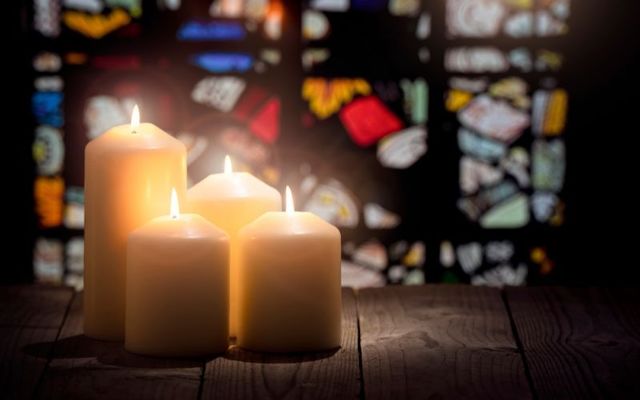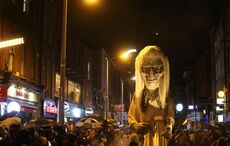In the Catholic Church, November 2 is the Commemoration of All the Faithful Departed, or All Souls' Day, a day to a day to commemorate and pray for the souls of those in Purgatory, those undergoing purification before entering heaven.
In Ireland, it was once widely believed that the souls of the dead would return to their family home on All Souls’ Night and great care was taken to make sure they felt welcome.
The Celtic nations believed that at certain times of the year, the boundaries between the mortal and unearthly realms broke down and this was especially true on Halloween (Samhain), All Saints’ Day, and All Souls' Day.
The ancient Irish believed the dead were repositories of wisdom and lore and that during this blessed period they would return to speak to their descendants. During these visits, the ancestors would bestow two gifts – the ability to remember old days and traditions and to hold a deeper understanding of how we are forever linked to our bloodline.
Preparing for souls return to the family
To prepare for the dead’s arrival, Irish families would sweep the floor and light a good fire. They would put out a bowl of spring water on the dinner table along with a place setting for each deceased relative.
In some places in Ireland, children would go “soul-caking,” visiting neighbors to beg for cakes in exchange for prayers to be said for the dead.
On All Souls' Day, the Irish would go to bed early, but before they did, they would visit the cemetery where their loved ones rested. They would clean each grave, say prayers to their departed, and leave a candle burning.
Before they went to bed, they would once more light a candle for each of those who had passed. In some cases, the candle would be placed in the window of the room where the relative or friend had died. Alternatively, the candle would be left in a window that faced in the direction of the cemetery. When the evening prayers were finished, the candle would be extinguished or allowed to burn out.
On this night, the door to the house was always left unlocked.
Similar All Souls' Day traditions around the world
Although many of the All Souls' Day traditions have died out in Ireland, similar customs continue around the world.
The Mexican traditions surrounding the commemorative day are probably the most widely known. They celebrate the day as El Dia de Los Muertos (The Day of the Dead.) Today they traditionally visit graveyards and have a picnic and leave food out for their dead relatives who are on their journey to heaven.
In the Philippines, they celebrate Memorial Day and their traditions include praying novenas for the holy souls, and decorating relatives' graves. On the night of November 1, celebrants go door-to-door, requesting gifts and singing a traditional verse representing the liberation of holy souls from purgatory.
In Hungary, the day is known as Halottak Napja, "the day of the dead," and a common custom is inviting orphans into the family and giving them food, clothes, and toys.
Today in Ireland, All Souls’ Day remains a day of commemoration when prayers and Masses are said for those dearly beloved who have passed.
Prays for All Souls' Day
Requiem Aeternam:
“Eternal Rest grant unto them,
O Lord,
and let perpetual light shine upon them.
May they rest in peace.”
Invocation for the Souls in Purgatory:
“My God,
bestow Thy blessings and Thy mercies
on all persons
and on those souls in Purgatory
for whom I am in charity, gratitude, or friendship bound
and have the desire to pray. Amen.”
St. Alphonsus Liguori (1697-1787), from his Novena for the Holy Souls in Purgatory:
“Blessed Souls,
I have prayed for thee;
I entreat thee, who are so dear to God,
and who are secure of never losing Him,
to pray for me a miserable sinner,
who is in danger of being damned,
and of losing God forever. Amen.”
Lithuanian All Souls' Day Prayer:
“Dear souls of the dead,
you are still remembered by my family;
you are most worthy of our perpetual remembrance,
especially you, my grandparents, my parents,
also our relatives, children,
and everyone whom death
took away from our home.
I invite you to this annual feast.
We pray that this feast be agreeable to you,
just like the memory of you is to us. Amen.”
* Originally published in 2016. Updated in 2024.




Comments